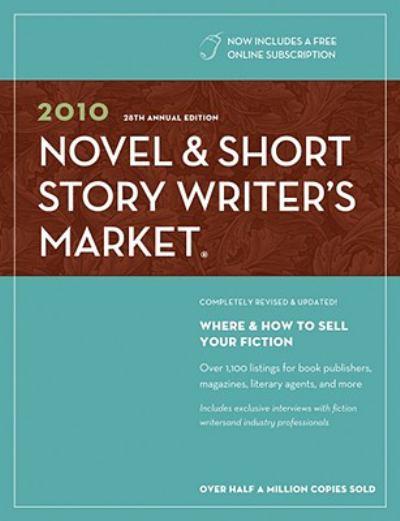“She will continue driving down the Feather River Canyon from Portola to sit in front of the plant where Paul died with signs about work place safety as long as she feels the need”
 “Friends and family of Paul Smith toasted him with his favorite drink — Coca-Cola — Wednesday at noon and remembered him on Facebook, exactly two years after he died in an accident at work.” — from the Mercury Register
“Friends and family of Paul Smith toasted him with his favorite drink — Coca-Cola — Wednesday at noon and remembered him on Facebook, exactly two years after he died in an accident at work.” — from the Mercury Register
Hi, reader. Writer of things to be read, probably. You, writer/reader, might have read, as I did, that interview between Jonathan Lethem and David Gates where they get anxious about “putting” the internet in their fiction. Or you might have read things about how brand names shouldn’t be “used” in fiction. Now I invite you to read a story about things that people do while they are trying to live, which may or may not help you to untangle these tough philosophical questions.
I am presenting the concept of creative nonfiction to intro writing students tomorrow. They will write their first exercise. Should I tell them to use qualifiers–“Perhaps, my mother said…” “As I remember it…”–or should I tell them to respect the reader: the contemporary reader obviously understands that CNF is flawed memory using flawed words.
A Quick, Late Post on Light in August
 I’m almost finished reading Light in August. It’s my first Faulkner. Starting at roughly the halfway point it grew into one of the most complex novels I’ve ever read; I’d like to write a fattish pamphlet on this book someday. But what I’d like to focus on here, in broad strokes, is a question regarding “how” rather than “what,” of logic and not of contradiction–specifically how Faulkner produces flat characters, that is, flat characters with depth.
I’m almost finished reading Light in August. It’s my first Faulkner. Starting at roughly the halfway point it grew into one of the most complex novels I’ve ever read; I’d like to write a fattish pamphlet on this book someday. But what I’d like to focus on here, in broad strokes, is a question regarding “how” rather than “what,” of logic and not of contradiction–specifically how Faulkner produces flat characters, that is, flat characters with depth.
Until the halfway point I mentioned earlier, I thought that Faulkner’s characters were, if not simple, then unsurprising–I expected, perhaps, the sort of character who would be presented at first as a racist, and would gradually come to light as nothing like one, as the modest guardian of the victimized race. More or less the character that commercial cinema wants us to believe always lurks within any localization of racist discourse. I eventually realized that many of the characters who seemed to me predictable were flat, pure surface depth: characters who function as signs, specific voices with almost automated responses–like binary switches–that present and order their social, political, or economic genealogies. Flat characters can be instruments of social critique, as in a Brechtian drama, or of comedy–a character who can simply be positioned and repositioned, his or her function made iterable and reiterated.
Regarding the Cover Letter Summary
As I remember it, it was once common to write cover letters for magazine submissions that started out like this:
Please consider my 3,444 word story “The Reinvigoration of Ronaldo” for publication in Fine Literary Journal Produced Either Independently or By the Grace of University Support. In “The Reinvigoration of Ronaldo,” the title character is running late for the most important meeting of his career, until he learns that life has more to offer for those willing to forsake punctuality.
It’s the second sentence I’m most curious about here, the summary of the story being submitted, modeled here after dozens of similar cover letters I’ve received at various magazines (but with all of the details being made up). When I first started submitting to literary magazines, this is exactly what books like the yearly Novel & Short Story Writer’s Market suggested you do (although I have to say that I thankfully never followed their suggestion). I haven’t bought a copy of that book in years, but recently had a chance to look through someone else’s, where I saw that they’ve moved to a cover letter that leaves out the summary, a move I certainly appreciate and that I think is generally agreed on. As an editor, I know the summary almost never endears me to read the story in question, partly because any summary of a short story tends to be incredibly (and negatively) reductive.
My question here isn’t whether or not submitters should leave off the summary–I think they most definitely should–but whether or not the summarizing itself is harmful to the writers who practice it.
Dick Context
 Last night I told a male co-worker slash friend that I had a lot of good meat for him. I was in a hurry to give away CSA (Community Supported Agriculture) meat that my wife had ordered from an expensive organic farm, as I didn’t want it to go bad like our previous batch. This morning I re-read the text and realized the innuendos, if taken without context. My co-worker slash friend had never received a call or text from me; I had his phone number for some incidental reason. My co-worker slash friend does not know that I am not a homosexual or pervert. I am just a guy he works with, a guy who one night abruptly told him that he had a lot of good meat for him. This morning I texted him explaining that the “good meat” was not my penis, in a diplomatic way that did not explicitly mention my penis. Words have meaning, but so do the areas around those words. There were some wieners though, so cosmic/semantic harmony is not completely lost on us.
Last night I told a male co-worker slash friend that I had a lot of good meat for him. I was in a hurry to give away CSA (Community Supported Agriculture) meat that my wife had ordered from an expensive organic farm, as I didn’t want it to go bad like our previous batch. This morning I re-read the text and realized the innuendos, if taken without context. My co-worker slash friend had never received a call or text from me; I had his phone number for some incidental reason. My co-worker slash friend does not know that I am not a homosexual or pervert. I am just a guy he works with, a guy who one night abruptly told him that he had a lot of good meat for him. This morning I texted him explaining that the “good meat” was not my penis, in a diplomatic way that did not explicitly mention my penis. Words have meaning, but so do the areas around those words. There were some wieners though, so cosmic/semantic harmony is not completely lost on us.
clichés are cliché
You shouldn’t go camping or canoeing on Memorial Day. It’s cliché. So I always go camping or canoeing. Mostly to see the inept, the drunk, the sun-charred, the unclothed, the loud, the wet: Example, White River below:
Jerome Stern said single words can be cliché. Azure or don. He claimed to have never heard these words actually spoken aloud. He also goes after blurt.
I wonder if clichéd phrases change over time, their meaning. Easy as cake. Was it once simpler to bake a cake? I recently made a pie so horrid my own dog refused to take one bite. And I lived in Memphis, TN for years, so never understood something as easy as “a walk in the park.” Walks in the park could be fatal in Memphis.
Stern also says that readers of mainstream/popular fiction don’t mind clichés so much, and that romance writers actually use them as code, as comfortable and familiar and expected (by the reader). This comes across as a bit elitist. But:
Here is a handy cliche finder.
I think in literary fiction, maybe situations are more cliché than words or phrases. The young man goes to the party. The apartment argument. The trip to a foreign land? The country mouse/city mouse disconnect story. Academia. Others?
The first man to compare the cheeks of a young woman to a rose was obviously a poet; the first to repeat it was possibly an idiot. Salvador Dali
A bit harsh, me thinks. Clichés are passed along because they are often apt. Their very survival might point to their effectiveness as metaphor, or as mnemonic device. Is it always laziness? I suppose the challenge is to first recognize the thing, then decide to use it, or make it new.
(“make it new” possibly cliché)
Composition Space without Exposition
I used to be in a writing group, there were three of us (I’ll name one F and the other K because they may or may not want me writing about them publicly), all women, professors in our mid-twenties to early thirties, with at least one book published, and drastically different writing styles, and it was the radical range in style that made our group function: there was no secret animosity, no competition, we read and respected each other’s writing, worked towards doing what we wanted to be doing. This group functioned how a writing group ought to function, at least to me. Then, of course, as things go with the academy, we scattered. K got a TT job. F and I stayed put in South Bend. But the group dynamic wasn’t the same, since we lost 1/3 of our membership, and eventually, I left too: up north, with my partner, who’s here for grad school, and I’ll start grad school in the fall too, in Geography, a move away from writing entirely.
But back to my story, I tend to wander: We used writing group time to “workshop,” absolutely, but between stories, we’d talk about process. Both K and F write primarily by computer, though they always have a notebook handy, in case they get ideas. Maybe, let’s call it, a hybrid type of writing, relying mostly on laptop. I write by hand, usually a whole draft or most of a draft, but I transfer to computer every day or three. We talked about that for a while, the difference between these two modes of composition, and—I’m getting to my point, slowly, but I assure you, I’m getting there—then, we talked about paper.
We all write in Moleskines, typical, cliché, we can admit that. Here’s the difference though: F writes on blank paper, K on lined, and I write on graph paper.



